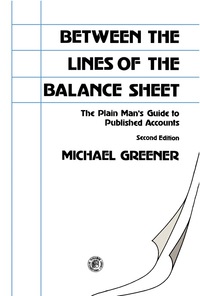QUESTION 1: How does the law define partnership? Why would people choose to establish a partnership instead of a company? Discuss some of the important
QUESTION 1:
How does the law define partnership? Why would people choose to establish a partnership instead of a company? Discuss some of the important cases which developed the law of partnership. What are some of the most important legal principles established in those cases?
QUESTION2:
Ming, Mya and Naz are friends who met at college. After graduation, they established a small proprietary company called Yazoo which supplies computer products to technology retailers. The three of them are executive directors of the company and Naz is also the Managing Director. Previously close friends, the trio has drifted apart over the years and now the three rarely see each other, either socially or at the office. Each frequently works from home and when one attends the office, one or both of the other directors may not be on the premises. You are the companys lawyer and Ming contacts you to tell you about his concerns about his fellow directors and the financial position of the company. He tells you that Mya has not attended board meetings for six months. The companys constitution requires board meetings to be held monthly. Ming last saw Mya three months ago. She said she had been on holiday in Bhutan and Nepal and told him that she had more important things to talk about than business. When they spoke, she insisted on telling him about her recent experiences of trekking and meditating. When Ming tried to discuss business matters, she told him that it was her hard work that had enabled the company to grow. She said, Now its me time. Im rewarding myself for my contribution. Ming has not seen Mya since that conversation but he remembers that she said that she needed to stretch her wings. He assumed she intended to go on another holiday. When he tried to call her on a few occasions, her phone diverted his call to Messages. Ming has seen Naz, the Managing Director, several times in the last six months but usually they have conversed briefly. Ming and Naz have held three board meetings but Naz has failed to attend three other scheduled board meetings. He told Ming that he is very busy starting a new company with his uncle and Yazoo can run itself. Ming has spoken to Yazoos accountant who has told him that for the last six months, the company has failed to pay four of its largest creditors for product supplied. Mya is usually responsible for authorising payments and the accountant has sent reminders to her. He did not know that Mya was absent and assumed that she would inform the other directors of his reminders. He has prepared monthly accounts for the board meetings and assumed the directors would discuss Yazoos undischarged liabilities. Ming says to you that he is a technical person and doesnt like financial matters. For that reason he avoided discussion of finances at the board meetings and Naz seemed uninterested in discussing operational matters. Assume that the Australian Corporations Act 2001 governs actions taken by Yazoo. Advise Ming about the potential legal liability of each of the directors in relation to Yazoos creditors. Have the directors breached any of their duties under the legislation? Please use the legislation and case law to support your answers.
QUESTION 3:
a) Describe and discuss the different types and classifications of companies based on their liability. What type of company structure would you adopt in the following situations: Having successfully run a local coffee shop for years, you now wish to expand your business and have two additional coffee shops in two new locations; You are a sugar farmer and wish to form an entity to advance the position of all sugar farmers; You are a mining magnate who is interested in exploration. (10 marks)
b) In this lecture, I have chosen to canvass a topic that has been the subject of intense discussion for a long time, but which remains fascinating and in significant parts unresolved. That is the problem of the veil to what extent can courts look behind legal structuresin determining the disputes before them? The topic of piercing the veil has been described as an unprincipledarea of the law (Hon Chief Justice M Warren AC Corporate Structure, the Veil and the Role of the Courts (2016) 40 MULR 657 at 659.) Critically discuss this quotation, paying particular attention to, eg, the James Hardie dispute. Do you agree? Analyse the situations under which the courts have pierced the veil and situations under which they have refused to do so. What are the themes?
Step by Step Solution
There are 3 Steps involved in it
Step: 1

See step-by-step solutions with expert insights and AI powered tools for academic success
Step: 2

Step: 3

Ace Your Homework with AI
Get the answers you need in no time with our AI-driven, step-by-step assistance
Get Started


